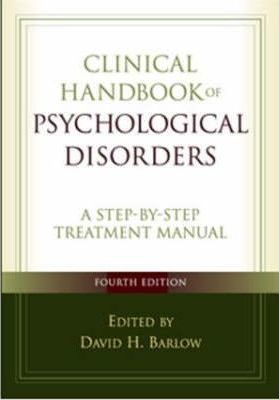
Psychologically healthy people live with relatively little stress and tension and can manage the daily challenges of life without experiencing negative emotional consequences. But psychologically impaired individuals can be deeply affected by the experiences of everyday life, sometimes leading to serious mental illnesses.
Psychological disorders often have multiple etiologies, including multiple complex interactions between biological and environmental causes
Many common risk factors for psychological problems are associated with their occurrence, but the relative contribution of each factor to individual psychological health is unique for each patient and for different psychological disorders. For this reason, it is important to investigate the potential link between a given psychological problem and its root causes.
Mentally healthy people can experience anxiety, depression, or other psychological disorders for a variety of reasons. Often, stress anxiety is the most common cause of stress. In stressful environments, the human mind tries to maintain normal levels of cognitive and physiological responses to stress through the release of endorphins. Levels of these substances rise in response to stress, resulting in increased feelings of well-being, increased immunity, increased happiness, and decreased feelings of sadness.
Endorphins are substances produced by the body in the brain when faced with certain types of stressors. These chemicals signal the body's successful adaptation to stressful situations. When there are no more stressful circumstances, the body returns to normal without the need to release endorphins again. However, if a person's circumstances change from such normal stress levels, a decrease in endorphin levels and an increase in stress hormone secretion may occur, leading to increased levels of anxiety, irritability, and depression.
Psychological disorders such as depression, anxiety and schizophrenia can have serious physical consequences, as well. Depressive disorder can lead to fatigue, muscle pain, headaches, muscle spasms, loss of appetite, insomnia, depression, weight gain, muscle weakness, and difficulty sleeping. The anxiety and obsessive compulsive disorder (OCD) can lead to insomnia, heart palpitations, difficulty concentrating, poor concentration, nervousness, irritability, restlessness, insomnia, lack of energy, increased heart rate, difficulty breathing and heart problems. While these physical manifestations may occur in their own right, they can also worsen the emotional symptoms of a mental disorder.
For example, an individual who suffers from depression may find themselves experiencing symptoms of low mood throughout the day, insomnia, difficulty concentrating and difficulty falling asleep, difficulty completing tasks and difficulty concentrating, and thinking clearly, irritability, being unable to think straight, and loss of interest in activities, and relationships. While the symptoms of the disorder themselves may not be obvious to the individual, others around them might notice them as being less than pleasant, causing worry, frustration. Other psychological symptoms may arise such as guilt, feelings of worthlessness, a general feeling of being worthless, feelings of helplessness, suicidal thoughts and even thoughts of suicide.
There are many other types of psychological problems, including phobias, which may also appear in conjunction with the other types of psychological problems described above. These disorders can range from very mild fears, such as fear of flying, the fear of public speaking or being around large crowds, to extreme fears, such as fear of death or the fear of water, earthquakes, or the fear of germs. Each of these fears may require medical attention to treat. These types of psychological disorders can create significant problems for the individuals who suffer them, as they create psychological obstacles that interfere with an individual's ability to function normally in their everyday life.
Unfortunately, many individuals do not seek treatment for psychological problems, despite the fact that they can have a detrimental impact on their lives. If you feel you are suffering from a psychological disorder, talk to your doctor today about the possible treatment options.